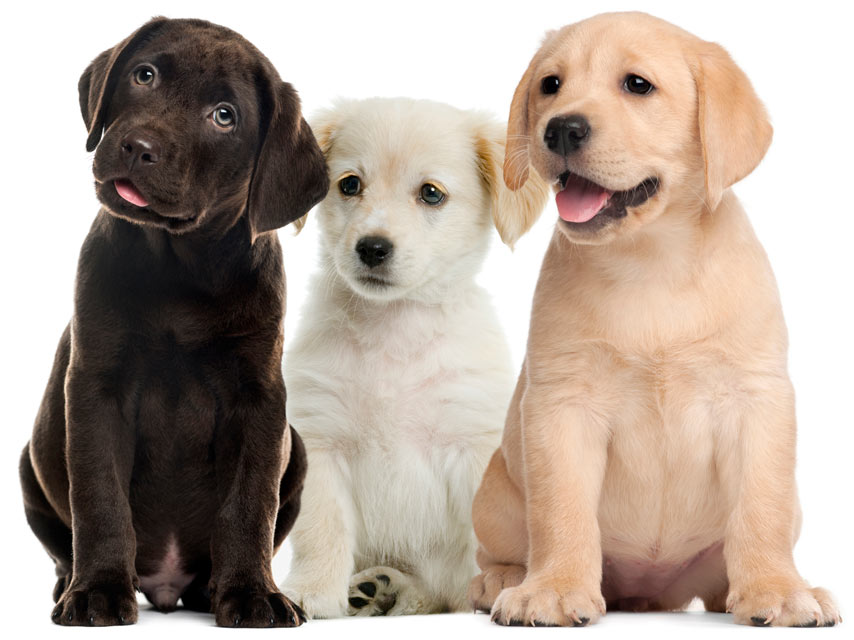Inguinal Hernias in Dogs

An inguinal hernia is an abnormally enlarged opening in the inguinal canal, which is an opening in the abdominal wall through which some nerves, blood vessels, and in males, the spermatic cord normally travel. When the opening is too large, other things can protrude through, such as intestine.
Causes of Inguinal Hernias in Dogs
The most common time an inguinal hernia occurs is in an adult female dog after a pregnancy. However, puppies can be born with inguinal hernias, as well, and in that case, it seems to be more prevalent in males and is thought to be congenital (inherited).
Trauma such as being hit by a car can also cause an inguinal hernia.
Puppies with inguinal hernias often have umbilical hernias as well.
Signs of Inguinal Hernias in Dogs
An inguinal hernia allows intestine or other abdominal contents, such as the bladder, to poke through the abdominal wall in the groin area, so they show up as soft swellings in the groin where the abdomen meets the tops of the legs.
A dog may have one or two inguinal hernias.
How Are Inguinal Hernias in Dogs Diagnosed?
A veterinarian will feel for an inguinal hernia as part of a complete general exam. If he or she finds one, an abdominal x-ray or ultrasound can help determine its extent as well as what abdominal contents are coming out of it.
The veterinarian will determine whether the hernia is reducible, which means the extruding contents can easily be pushed back in.
If the intestine or bladder are poking through the hole, they may become strangulated, which means they can't move back into the abdomen. If that happens, the organ will lose its blood supply and die. A strangulation requires emergency surgical repair.
In a pregnant dog with an inguinal hernia, part of the uterus may protrude through the opening, and that must be monitored closely. A Caesarean section may be required.
Treatment of Inguinal Hernias in Dogs
The treatment for a canine inguinal hernia is surgery to suture closed the abnormal hole.
If your puppy is diagnosed with an inguinal hernia, your veterinarian will evaluate whether it's easily reducible and, if so, probably show you how to check it too. As long as the contents are reducible, most inguinal hernias are repaired at the time of spay or neuter.
You May Also Like These Articles:
Sexual Behavior in Neutered Dogs
Gazing into Your Dog's Eyes Releases Love Hormone
Disclaimer: This website is not intended to replace professional consultation, diagnosis, or treatment by a licensed veterinarian. If you require any veterinary related advice, contact your veterinarian promptly. Information at DogHealth.com is exclusively of a general reference nature. Do not disregard veterinary advice or delay treatment as a result of accessing information at this site. Just Answer is an external service not affiliated with DogHealth.com.


